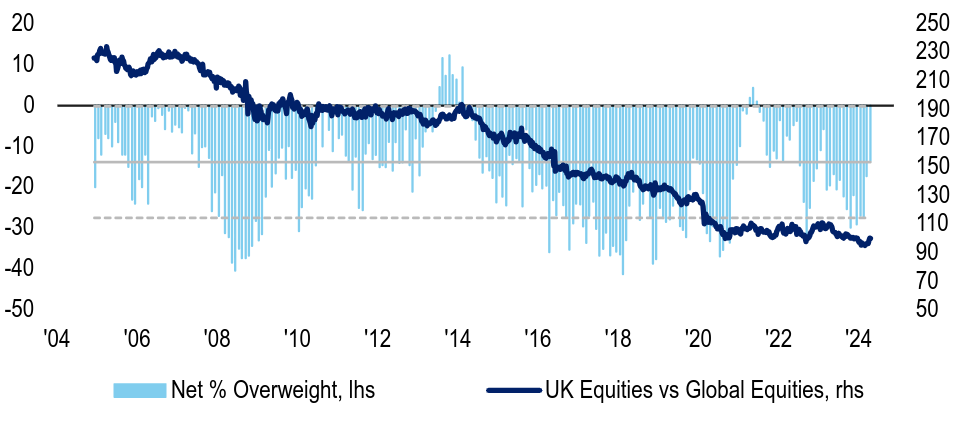Investing in the UK is back… to being the third least preferred option

The UK has slowly climbed up the allocation of Bank of America’s monthly global fund manager survey, now sitting as the third least preferred sector to invest in across the world.
This is up from second worst last month, when managers favoured real estate investment trusts slightly over the UK, and March, when the UK was least favoured and managers were net 27 per cent underweight to the country.
Now, a net 14 per cent of global investors say they are underweight UK, the best result in twelve months and way ahead of both utilities and real estate investment trusts, which are both approaching a net underweight of 30 per cent.
Real estate suffered especially badly this month, with their largest underweight since June 2009.
Global investors have been consistently negative on the UK since July 2021, and have been underweight it against global equities since 2014.

Looking worldwide, this was actually the most bullish Bank of America fund manager survey since November 2021, driven by optimism over rate cuts.
Eight in 10 of those surveyed expected interest rate cuts in the second half of this year with no recession, with cash levels down to just four per cent, a three-year low, while stock allocation was its highest since January 2022.
78 per cent of those surveyed expect the Federal Reserve to cut interest rates twice or more over the next 12 months, with the largest group being 45 per cent that expect two cuts.
However, this month did see the first drop in global growth expectations since September 2023 due to pessimism around US macroeconomic performance, with a majority now expecting a weaker global economy over the next year.
41 per cent of managers identified higher inflation as the top risk for investors, followed by geopolitics at 18 per cent and a ‘hard landing’ at 14 per cent.
The Magnificent Seven also continued to be viewed as the most ‘crowded trade’ by managers, with 51 per cent selecting ‘long Magnificent Seven’, compared to 12 per cent for ‘long US dollar’.